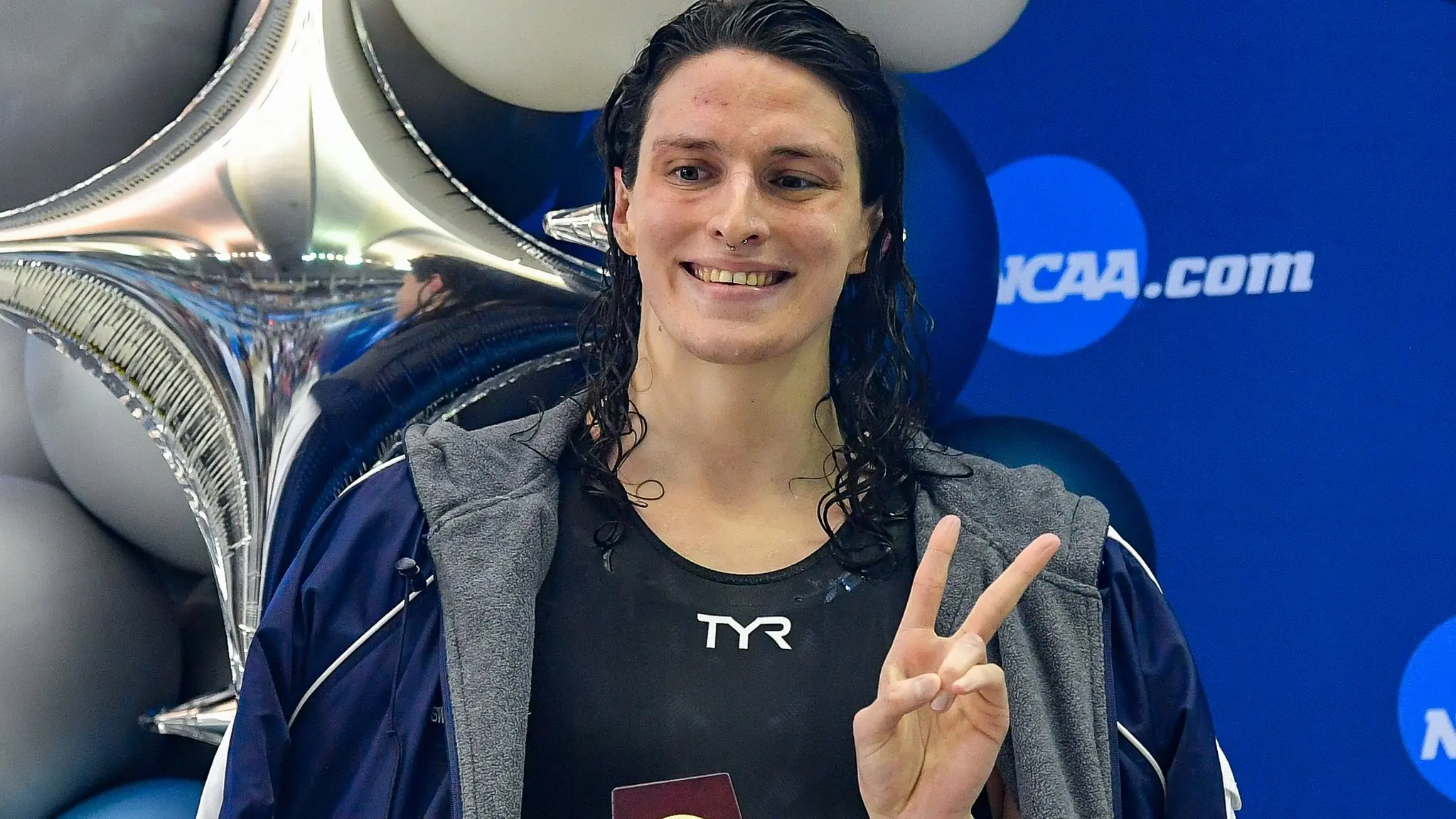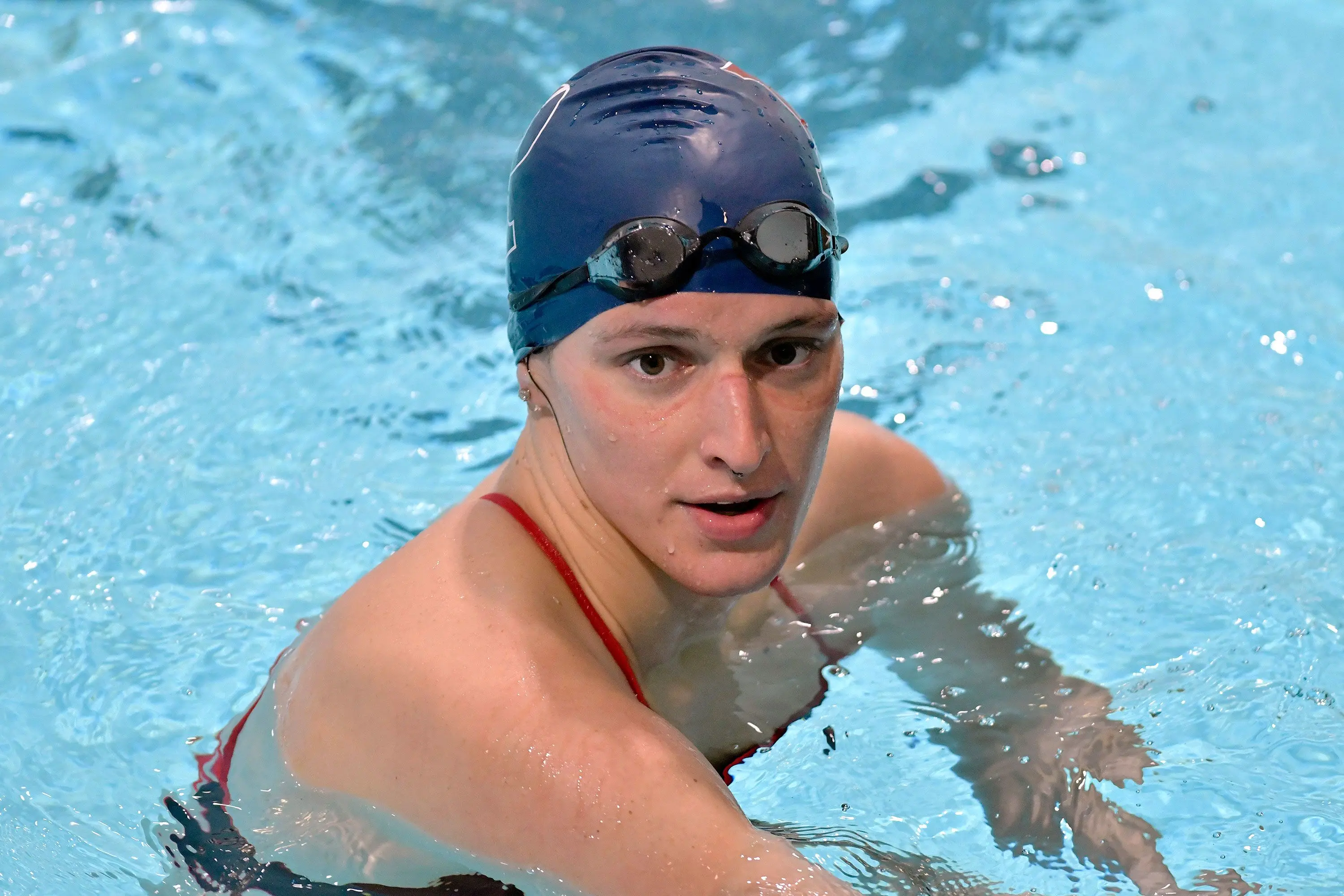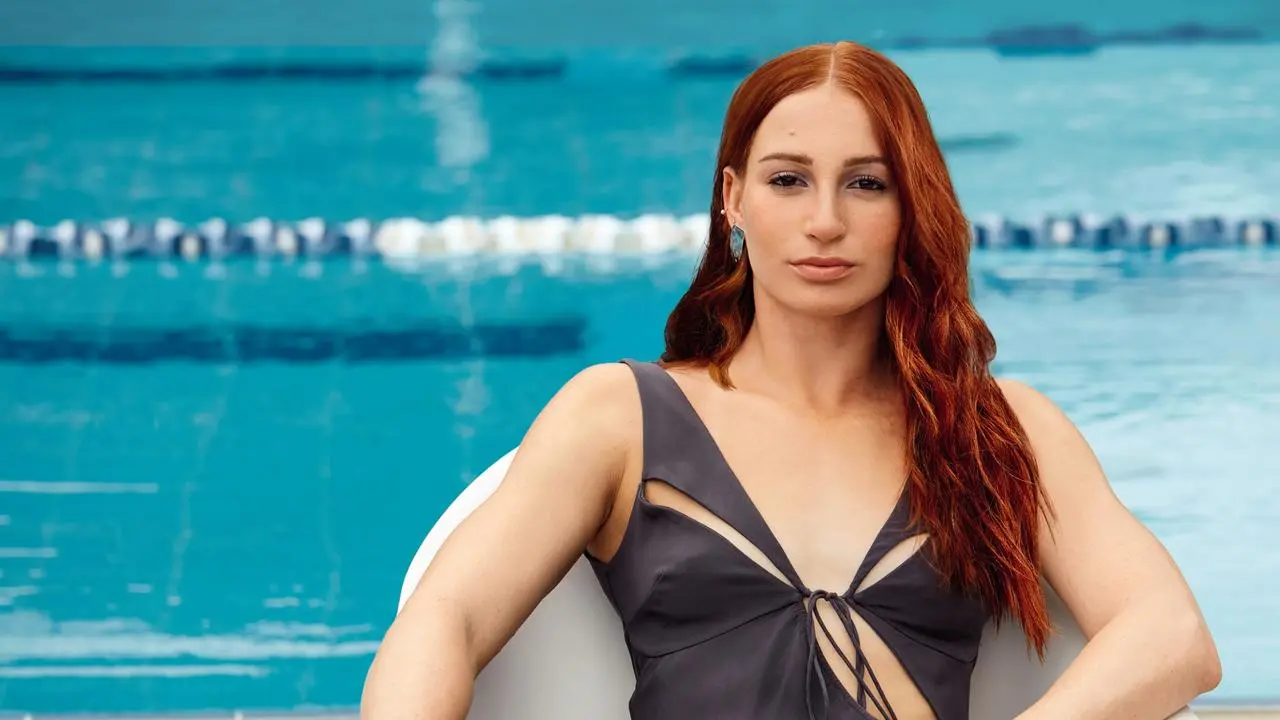🔥 The world of competitive swimming was rocked when Mollie O’Callaghan made a bold declaration: “Wherever he goes, I go. Goodbye Australia.” Her words immediately drew international attention, sending shockwaves through athletes, fans, and sports organizations alike.

O’Callaghan, a rising star in swimming, expressed her frustration at what she described as a blatant insult to women and to the integrity of the sport. Her statement resonated with many who felt the issue had been ignored for too long.
Within hours, social media erupted. Hashtags in support of O’Callaghan began trending worldwide, with fans praising her courage and calling for stronger protections for female athletes in competitive swimming.
Several prominent swimmers publicly expressed solidarity, announcing that they would consider withdrawing from upcoming competitions if the issue was not addressed. This unprecedented unity highlighted growing tensions in the sport.
The controversy centered around Lia Thomas, whose participation in women’s swimming events has been the source of ongoing debate regarding fairness, inclusion, and competitive integrity. Thomas reportedly remained unfazed by the backlash, sparking further outrage.
In response to escalating tensions, the World Aquatics Federation called an emergency meeting to address the concerns of athletes, coaches, and national federations. The organization acknowledged the seriousness of the situation and the need for immediate action.
Inside the meeting, representatives discussed potential policy revisions, safety protocols, and fair competition guidelines. Leaders emphasized that athletes’ voices must be central to any decision-making process affecting the future of the sport.

O’Callaghan’s statement has sparked broader conversations about gender, fairness, and inclusion in athletics. Many experts argue that while inclusivity is important, competitive balance and women’s opportunities must also be carefully preserved.
Athletes supporting O’Callaghan described the issue as more than competition—it is about respect, safety, and recognition of years of training. They expressed frustration that their concerns were often overlooked by international organizations.
The debate quickly crossed national borders. Media outlets worldwide covered the story, analyzing the potential impact on Olympic qualification, sponsorships, and the integrity of international swimming competitions.
Fans of O’Callaghan expressed admiration for her bravery. Many described her as a role model, willing to challenge powerful figures and institutions to protect what she believes is the core of her sport.
Inside swimming clubs across Australia and the world, conversations became heated. Coaches, athletes, and parents debated fairness, ethics, and the responsibilities of governing bodies, showing the deep divide within the swimming community.
Thomas, meanwhile, reportedly reacted to the backlash with a mix of defiance and amusement. Witnesses claimed she smiled during some exchanges, which only intensified criticism from O’Callaghan’s supporters.
Emergency discussions at the World Aquatics Federation included potential sanctions, rule clarifications, and new guidelines to protect female athletes’ interests. Officials acknowledged the complexity and sensitivity of the issue on a global scale.
Some countries’ swimming federations considered boycotts or selective withdrawals from events in solidarity with O’Callaghan, emphasizing that athlete safety and fairness must take precedence over competition schedules.

The media highlighted personal stories from female swimmers affected by the ongoing controversy, sharing experiences of feeling overshadowed or unfairly disadvantaged in competitions, which added emotional weight to the debate.
Athlete advocates called for transparency and fairness in decision-making, stressing that policies must reflect not only inclusion but also competitive integrity and respect for women’s sports achievements.
O’Callaghan’s statement sparked discussions in broader sporting communities beyond swimming. Experts in athletics, gymnastics, and team sports examined parallels, emphasizing the need for equitable policies across all female competitions.
Social media continued to fuel the controversy, with fans, pundits, and former athletes weighing in on fairness, inclusion, and the responsibility of governing bodies to protect competitors’ rights and mental health.
The emergency meeting concluded with promises for immediate review of policies, enhanced athlete protections, and further consultations with stakeholders. Officials pledged to provide updates, aiming to restore trust and stability in the sport.
Ultimately, Mollie O’Callaghan’s bold stance represents more than a protest; it signals a pivotal moment in competitive swimming. Her willingness to speak out has prompted a worldwide conversation about fairness, inclusion, and the values that define women’s sports.
ring arena, fans witn…